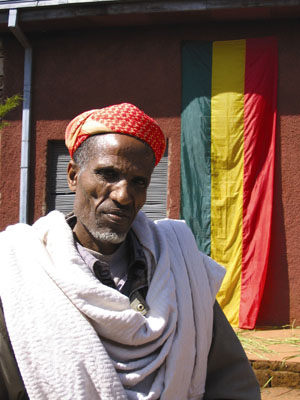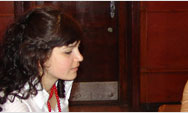You are here » Home » Telling Our Story
Success Story
Religious leaders come to trust church for its work on family planning
Bridging a Divide for Health’s Sake

Photo: Pathfinder/Margot Kane
Leaders of the largely Muslim Alaba District in Ethiopia such as Imam Wolchafo support the work of the Ethiopian Evangelical Church Mekane Yesus to bring family planning and reproductive health services to the community through a USAID program.
“Our women look good now. Our children are not malnourished anymore,” said Imam Wolchafo.
When members of the Ethiopian Evangelical Church Mekane Yesus started delivering the first community-based family planning services in Alaba, a predominantly Muslim district in Ethiopia that suffers from chronic drought and famine, “no one understood what they were talking about,” said Imam Wolchafo, a prominent Muslim leader there. And, because of the program’s affiliation with a Protestant faith-based organization, Alaba residents feared they had a religious agenda.
“Before [they] started in our woreda [district], nobody cared about our problems,” he said. “Our women delivered many children. Due to early marriage and frequent childbirth, all the women suffered physically and all the children were malnourished. Only a third of us had healthy physical statures; everyone else was stunted or malnourished. Men also suffered physically and economically. Harvests were not enough to feed their families,” Wolchafo said.
Community leaders from Alaba went to the local Ministry of Health office with their concerns, and the local government confirmed that the reproductive health and family planning program’s intentions are poverty alleviation by reducing fertility rates. Since then, the church has been working in harmony with Alaba District authorities and the community.
USAID initially started working closely with religious groups in Ethiopia on HIV/AIDS prevention, care and support. Working with religious leaders and faith-based organizations proved quickly to be a key strategy to reach the grassroots level and change behavior in an extremely religious society.
With USAID support, these groups are now working directly within communities to teach that family planning and reproductive health are ways to reduce poverty. Their work has expanded to include educating communities about the effects of harmful traditional practices such as early marriage, abduction, female genital mutilation, and polygamy. The religious leaders work side-by-side with over 10,000 trained community-based reproductive health agents throughout the country.
Print-friendly version of this page (533kb - PDF)
Click here for high-res photo
Back to Top ^
|




